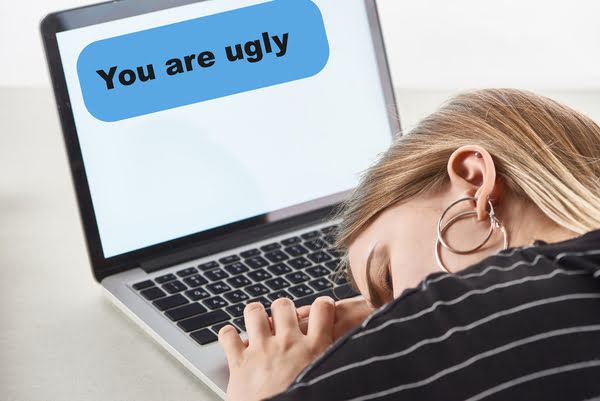Name-calling or labeling is calling someone by degrading and demeaning names. The goal of name-calling is to hurt someone and make them look bad. It can occur in any relationship but is particularly damaging in a romantic relationship.
A few incidences of name-calling here and there are forgivable, but if it happens repeatedly, it’s verbal and emotional abuse.
Name-calling erodes the self-esteem and self-identity of the victim over time. The decrease in trust and safety creates a toxic environment in the relationship.
However, the intention of the name-caller may not always be bad. Name-calling is typical in kids. Adults who name-call are, therefore, acting like children. Name-calling in adults may be a sign of low emotional intelligence and emotional immaturity.
Name-callers usually attack your:
- Physical appearance
- Personality
- Actions
- Beliefs
- Name
Since all these are essential aspects of your identity, you feel personally attacked by name-calling.
What’s the psychology behind name-calling?
He who says, is
Name-calling is a way to put someone down. Why would anyone put someone down?
To make themselves feel superior and better about themselves. Why do people want to feel superior?
Because that’s how humans are. Humans are a hierarchical species. We care about who’s above us and who’s below us.
If someone feels inferior to you, they experience insecurity and self-doubt. Name-calling is an easy and fast way for them to ease these negative feelings. By belittling you, they feel bigger and better about themselves.
Some have called this phenomenon displaced aggression. People who are disappointed with themselves but can’t face their own emotions find an easy target to dump their feelings. It’s a way to project their own negative thoughts and beliefs onto others.
Pay attention to the specific names that people call you. What they call you is likely what they’re struggling with.
For instance, if someone calls you stupid, it’s likely that they think they are stupid.
Knowing that the names people call you have more to do with them than you help depersonalize these attacks.
Poor communication
When someone is angry, frustrated, and disappointed, instead of communicating their emotions openly, they’re likely to resort to name-calling to communicate their hurt.
Hurt people hurt people.
If someone’s name-calling you, it’s probably because they were hurt by something you did. Instead of communicating their hurt, they hurt you back. This also puts you into defensive mode, creating a cycle of hurt.
So, the next time someone name-calls you, try asking them something like:
“Why are you so hurt?”
“What did I do to hurt you?”
Resist the temptation to hurt them back. If you give in to that temptation, brace yourself for the cycle of hurt that’s coming. It’s better to nip the evil in the bud via effective communication.
Power games
Inferiority and superiority are about status. Status is about power. Higher-status people have more power, and lower-status people want the power that higher-status people have.
When a higher-status person name-calls a lower-status person, they put them in their place.
“I’m the boss, so you better do as I say.”
When a lower-status person name-calls a higher-status person, they try to get a temporary status and ego boost. This is why celebrities get so much hate on social media.
People, regardless of their status, want control. They don’t want to be controlled.
Lacking empathy
Some people, like narcissists and psychopaths, lack empathy. They might be unable to see how their name-calling affects the other person.
While normal people may think dozens of times before labeling someone hurtfully, these people seem to have no qualms about their lack of consideration.
‘I was kidding’
Some people are more emotionally intelligent. They’ll put you down, but do it under the guise of humor. They’ll crack a joke at your expense and then complain that you’re too sensitive and ‘can’t take a joke’.
Like sarcasm, it’s an underhanded way to put someone down and get away with it.
People you’re not on joking terms with shouldn’t be joking about you.
Prejudices
The status and power games I mentioned earlier also play out on the level of groups. Humans have this group bias where they see in-groups positively and out-groups negatively.
We tend to dehumanize those who don’t belong to our group. This is at the root of many forms of discrimination.
When you dehumanize others, you strip them of their humanity, dignity, and respect. You feel justified in name-calling them.
From a high school playground to international affairs, the underlying message is the same:
“You’re not good enough to be accepted into our group.”

